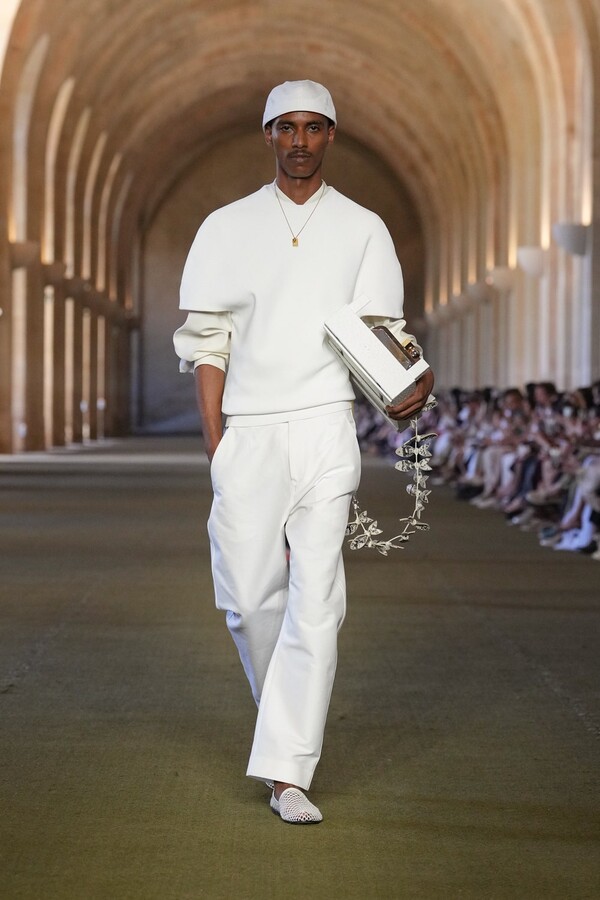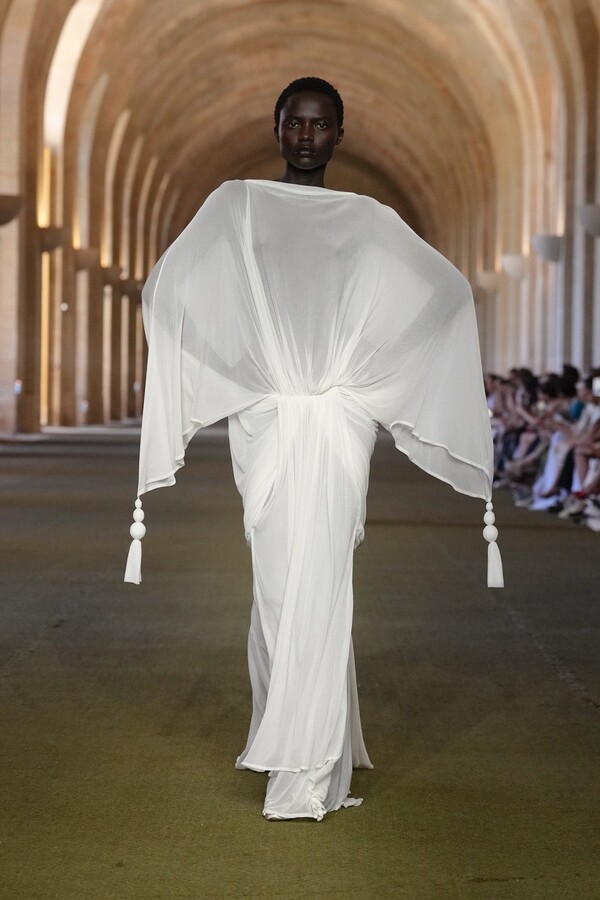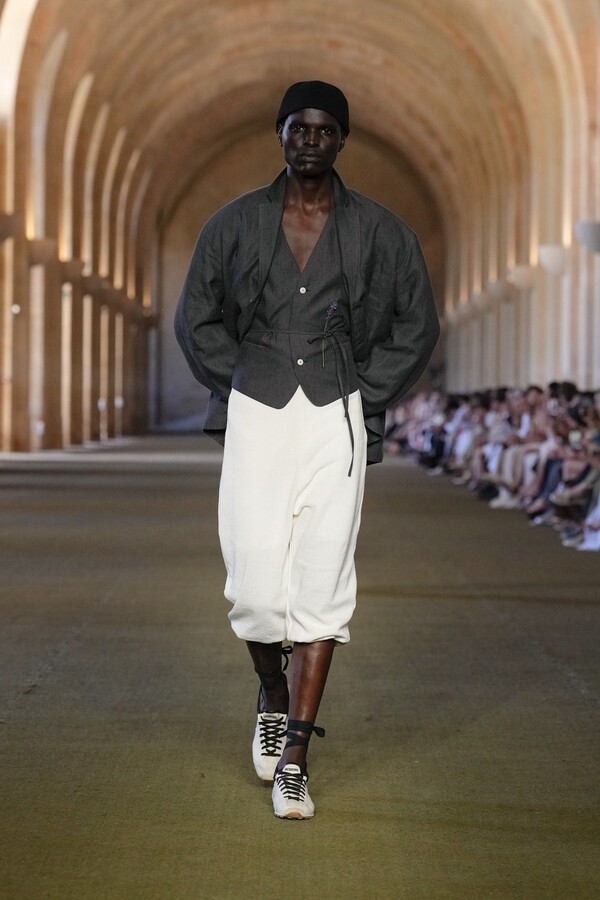Versailles, Reversed: Fashion Week Ends Where Jacquemus Begins
Jacquemus closed out Paris Fashion Week not just with a show, but with a quiet takeover of the Palace of Versailles — a setting that functioned less as scenery and more as symbol. The playful micro-bags and cherry-fueled virality were noticeably absent. Instead, the collection leaned into precision, intention, and a kind of poetic minimalism that demanded recognition, not spectacle. This wasn’t a performance built for clicks — it was a body of work asking to be understood.
Jacquemus has always been fluent in the language of image. For years, he has given us tomatoes, linen fields, sun-drenched balconies and cinematic vignettes of summer. But with this SS26 collection, he seems to be searching for something less photogenic and more permanent. The silhouettes spoke louder than the setting. Dresses appeared reversed, pleated constructions unfolded mid-movement, and the tailoring—though subtle—spoke volumes.
Gone was the Instagram bait. In its place, a kind of studied restraint that whispered of a designer ready to graduate from viral sensation to heritage builder. A white look, almost ecclesiastical in its severity, stood in stark contrast to the soft blush palette that followed. Shoulders were pulled forward, necklines elongated, and hemlines dropped to near-monastic lengths. Everything felt intentional — less moodboard, more blueprint.
Yet it wasn’t without emotion. The designer looked inward this season, referencing his childhood, his family, and his own mythology. It was as if Jacquemus finally turned the camera on himself, but without vanity. The collection became a mirror: of past, of growth, of how far he’s come — and how much further he wants to go.
In many ways, this show was a reset. Not a reinvention, but a quiet recalibration. The romanticism remains, but it’s less flirtation, more reflection. Jacquemus doesn’t want you to just watch. He wants you to look — closely.


